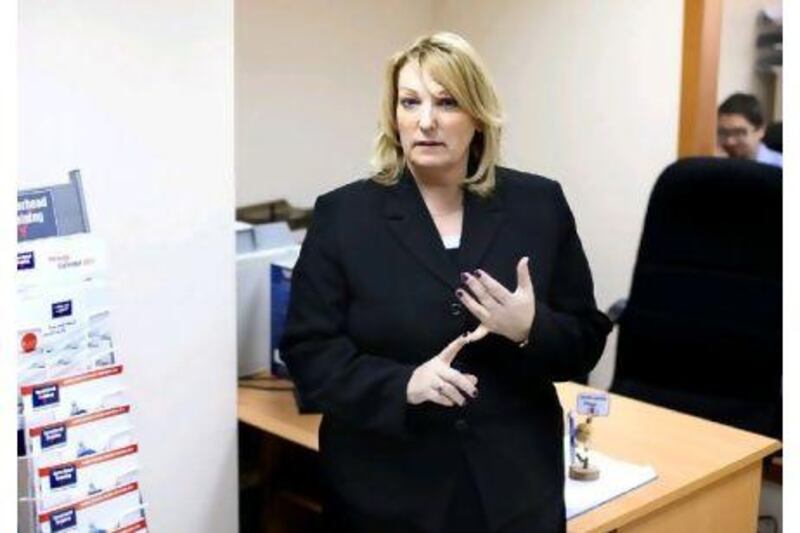Hi reader,
I'm writing this note to help you understand how to write a top-notch business e-mail. But I'm already not on the right lines. That is, if you follow the guidelines set by the Abu Dhabi business training specialist Spearhead.
Vanessa Leeder, Spearhead's office manager, says business e-mails should start formally and the sender can respond in a less formal manner, depending on the response they receive.
So this missive should have started "Dear reader", included the date and added a subject line in the e-mail. What's more, my first line is not only too informal, it has more than two verbs, which according to Spearhead is a common faux pas. My previous line is also incorrect because I used contractions, which are also a no-no.
Michael Lorrigan, Spearhead's managing director for the Gulf, says opening an e-mail with words such as "hi" and "hey" is "like going into a business meeting in shorts and T-shirt".
The best e-mails, he says, always follow the 5 Cs: clear, concise, correct, complete and confirm - the latter referring to his belief that the sender should always follow up with a phone call or another e-mail to confirm receipt.
Do not use jargon or colloquialisms, Mr Lorrigan adds, meaning I should also delete "top-notch" from my first line.
In today's age of social media, this might all seem a bit too formal to many people in the workplace.
But training consultancies say it is better to err on the side of formality than offer the wrong impression to a prospective client, your boss or a colleague.
Most people send hundreds of e-mails a week, and thousands a year, so the rules might be hard to follow.
Many would also argue that informality can often lead to a more fruitful business relationship.
"Respond to how the conversation develops," Mr Lorrigan says. "People forget that we are in the Middle East, where respect and formality are important."
Spearhead's standard is to address an Arabian person by their first name, because this is the norm in the region.
"You should put in place your own business standards and stick to them," Ms Leeder says.
The sign-off is often one area of the e-mail that people ponder most. Best wishes, cheers, regards, kind regards are all office favourites.
But how kind should your regards be? Spearhead says that with regard to your regards, stay consistent and always end with "yours sincerely" if you are familiar enough with the recipient that you know his or her name. If not, "yours faithfully" is a safe conclusion. Asking for confirmation of receipt is also recommended.
Please let me know if you read this by commenting on the article at thenational.ae.
Best regards and yours faithfully,
Rory Jones,
Reporter
PO Box 111434, Abu Dhabi,
United Arab Emirates
Tel +971 2 414 5288






